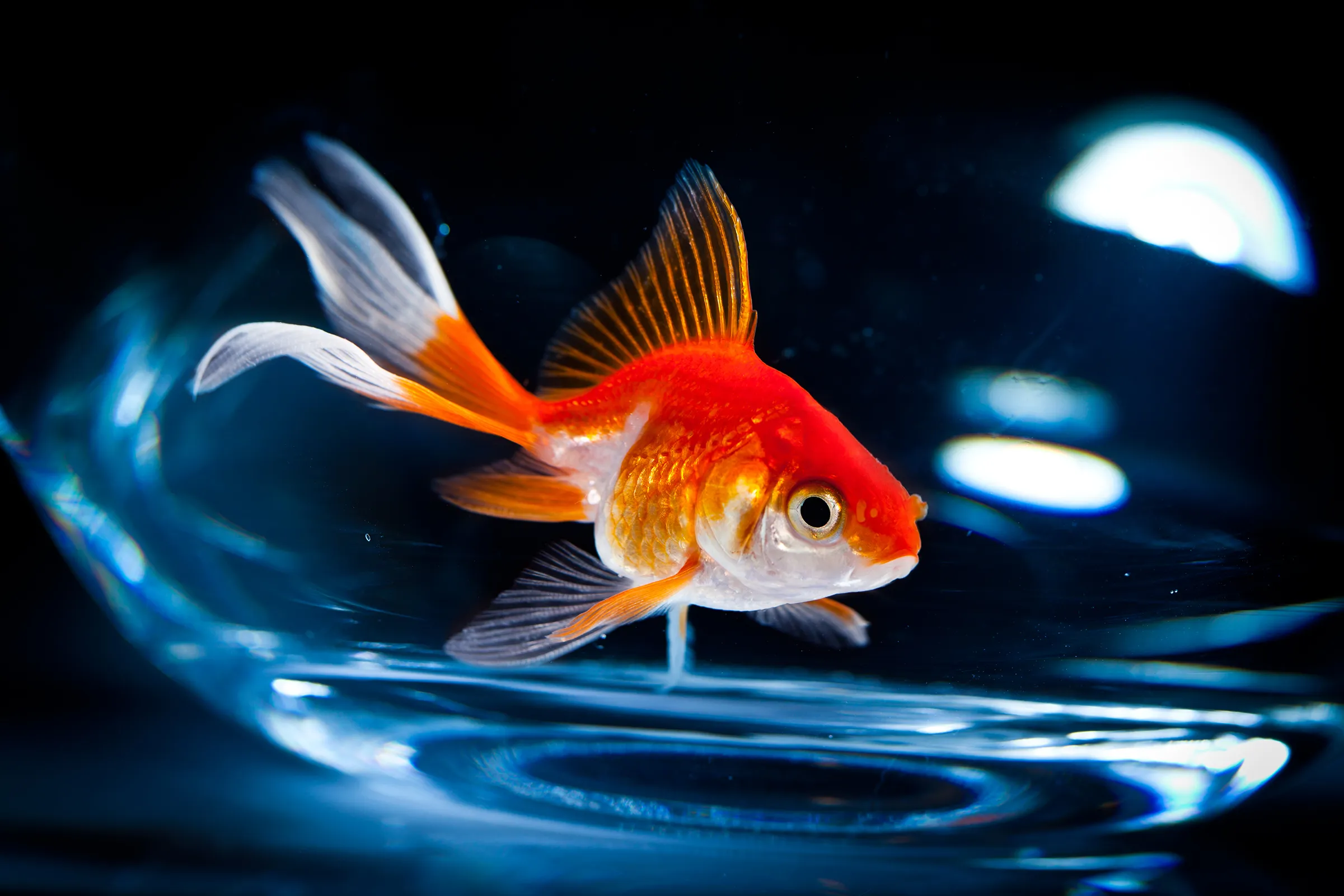
Origin of goldfish
The goldfish species has existed for a considerable amount of time. The earliest known date in China was around 960 AD. Chinese and Japanese aquarists have meticulously raised goldfish throughout the millennia into elegant types that differ greatly from their Prussian ancestry. By purposeful breeding of biological mutations, goldfish have developed from boring, silver-gray, short-finned fish to incredibly complex and brightly dynamic species. Read more about goldfish species
Living conditions
Goldfish can live in extremely cold water, but only for short periods. As low as 38°C is safe for them to live, but only when the temperature is lowered slowly. Only warm water which is above 13°C and below 27°C, will support the growth of goldfish. As they are poikilothermic, the water in which goldfish reside is the same temperature as them. The temperature of water shouldn’t change by more than 3°C when they are moved from one water body to another.
Food
Goldfish are omnivores, meaning they can consume both plant and animal food. Both are necessary for them to remain healthy and prevent digestive issues, especially for those with small, rounded bodies. The amount of food you give your goldfish will vary depending on the season, how old they are, and whether you intend to breed them. Overfeeding goldfish with dry food, which quickly pollutes the water they reside in, is the main cause of goldfish deaths.
Treating their illnesses
The harsh conditions in which goldfish reside lead them to get unwell or possibly die. The main reason goldfish die is polluted water, which is caused by overfeeding them a dry diet. Food left unattended and quickly decomposing increases the amount of ammonia in the water, which kills all varieties of fish. For the majority of problems, changing the water and adding 3-5 grains of salt per liter is an easy fix. Goldfish can withstand significant levels of salt in their environment if salt is added gradually.
Growth requirements
The total surface area required for a goldfish is around 24 square inches for every inch of length of its body. As they possess higher weight per inch, elegant deep-bodied types need more square inches of surface space than the ones before them. Goldfish may survive in severe, tender, acidic, or alkaline water because of their excellent sensitivity to a broad range of water parameters. However, they cannot stand low oxygen saturation levels brought on by crowded conditions or contaminated water.
Aquariums and living places
Goldfish may be kept both indoors and outdoors. It is acceptable to keep goldfish indoors in a 15-gallon aquarium when the overnight coldness doesn’t drastically lower the temperature. Check that the water body or container is big enough to stop noticeable temperature swings if you decide to keep them outside. Goldfish must be protected from cats and birds if they are kept outside. Their bright colors make them optimal prey for birds.



